Why 'Once Upon a Time in Hollywood' Is Tarantino's Greatest Film
Spoilers ahead, and nine perfectly valid points.
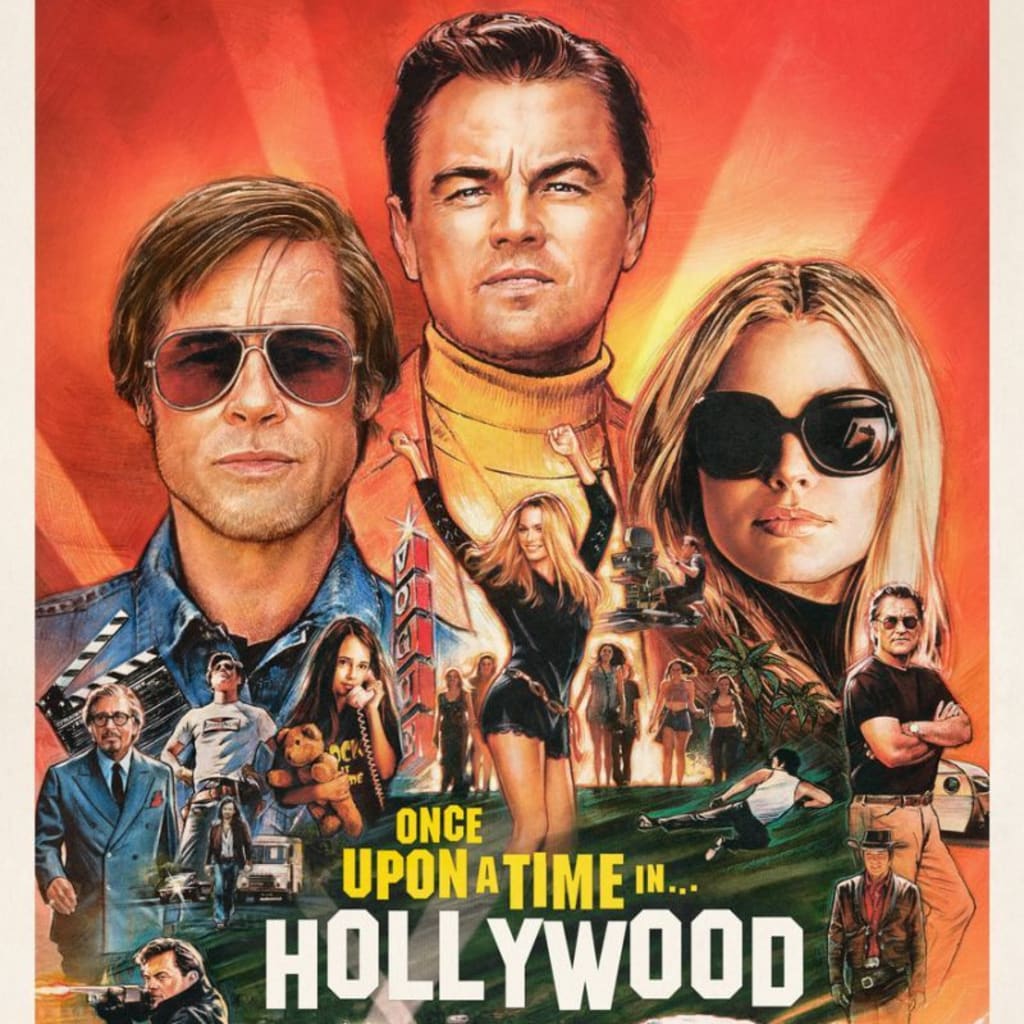
Before Once Upon a Time in Hollywood, Quentin Tarantino had directed eight films. Eight classic films. Eight films that his fans adored so much. From the confused rage of Reservoir Dogs to the chilling bitterness of The Hateful Eight, there were highs and lows, but ultimately we are a generation that bore witness to the creation of a timeless collection. The ninth film, Once Upon a Time in Hollywood was arguably his most polarizing. Hardcore fans, as well as the general public either loved it or hated it entirely. Today it will be argued that it is his greatest film. Perhaps not in the way we all expected, but even still, this holds true. To honor the ninth installment in his collection, nine brief points will be argued for this case.
1. Brad Pitt as the Comeback Kid
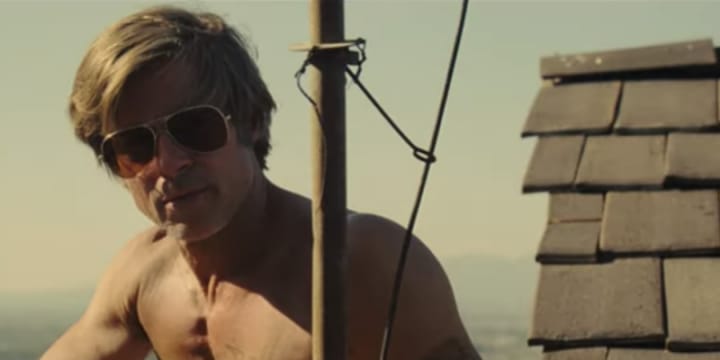
Brad Pitt has not been in a major blockbuster hit in a while. The last notable movie he was in, in the realm of Hollywood guile was The Big Short, which was released in 2015, the same year as By The Sea, which was a cinematic tell of his marriage and family about to fall apart. During this time, his career hit a four-year slump. Despite this, he had not shed the spotlight for all the wrong reasons. Rumors of drug and alcohol abuse, child abuse, and a crumbling marriage to Angelina Jolie were major tabloid headlines with no conclusion of truth to all but his divorce. In recent years, since it was announced that he was to have a prominent role in Once Upon a Time in Hollywood, his portrayal became much more positive, and it seemed as if he was gaining traction in the industry again. His performance as stunt man, Cliff Booth, was the most intimate of the movie. The characterization was subtle, yet strong as he seemed to fall into the shadow of Rick Dalton (Leonardo DiCaprio), as Dalton was prone to primadonna-esque outbursts as his career was on a downward turn. As we gathered hints of the mystery that was Cliff Booth, we found out how rounded his character was, in terms of his caring nature (toward Dalton and Brandy), exploratory tendencies, go-with-the-flow type attitude (even when his character was slandered by hearsay), and choice of when to use his strength. Despite his personal life, this movie gave us an affection for Brad Pitt again that we had not seen in years. His next starring role will be in Ad Astra, which is due to premier September 2019.
2. Theme of Justice vs History
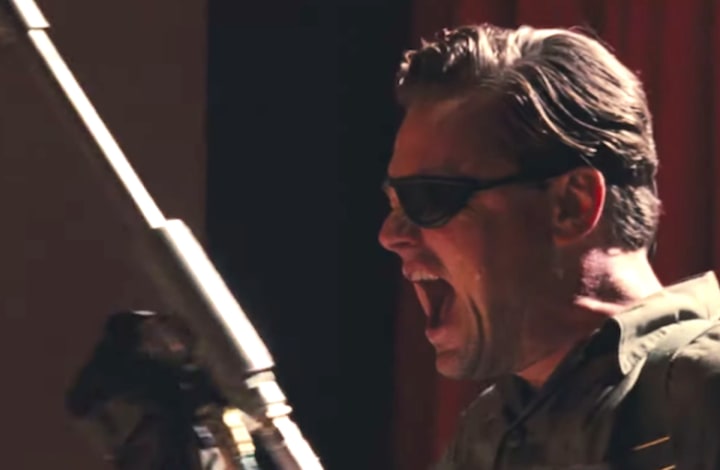
It is no question that a prominent theme in almost all of Quentin Tarantino's films is revenge and justice. Kill Bill is his most obvious example. Inglorious Basterds proved that he has the audacity to take the most heinous historical facts, and rewrite them as a "fuck yes" moment for the audience. Inglorious Basterds did this by burning Hitler, and the rest of the most powerful Nazis at the time. Once Upon a Time in Hollywood did this by taking the story of the Manson murders, and revising the story to essentially give the satisfaction of revenge on the murderers, and an alternate perspective in favour of the main character. The suspense building up to the date and time of the murders made it seem like we were about to watch them get killed, but knowing Tarantino's methods, it could have gone any way. Sharon Tate and Jay Sebring survive the movie, which in essence was a feel-good, and also hollow ending in knowing the actual historical event that took place. The film created a world where Sharon Tate was given the opportunity to ride her success to stardom, become a mother, and live the rest of her life. The Manson Family were given another alternative to life in prison. Gruesome, fiery, vengeful, LSD dipped cigarette fueled death at the hands of Rick Dalton, Cliff Booth, and Dalton's Italian wife, Francesca.
3. Portrayal of Sharon Tate

There has been some controversy regarding Margot Robbie's role as Sharon Tate. She is billed as a main character, but did not speak much. Despite that, it did not do disservice to Margot Robbie or Sharon Tate's legacy. Tarantino portrayed her in an idealistic version of her life. She was having fun with her high profile friends, working her dream jobs in feature length films, and essentially living the 60s Hollywood fantasy. Margot Robbie enveloped how Tate's sweetness and vitality had been described. The role humanized Tate, and redirected focus from her being portrayed as "Pregnant Starlet Victim of the Manson Family" for the last 50 years, to being a young, talented actor, enjoying herself, and feeling excited about the future. Tarantino wrote her with respect and admiration for her as a person and her work. It is most evident in the scene where she is watching herself in The Wrecking Crew (minus the gratuitous foot emphasis). She is genuinely excited that she is viewing the product of her hard work and training, and is thrilled she is able to witness people responding well. The real footage from the film was shown in relation to Robbie's reactions to emphasize that Tate was a real person, a real actor, that got her life taken away, instead of the disparaged, grim figure that Tate has been associated with since her murder.
4. Aesthetics & Soundtrack
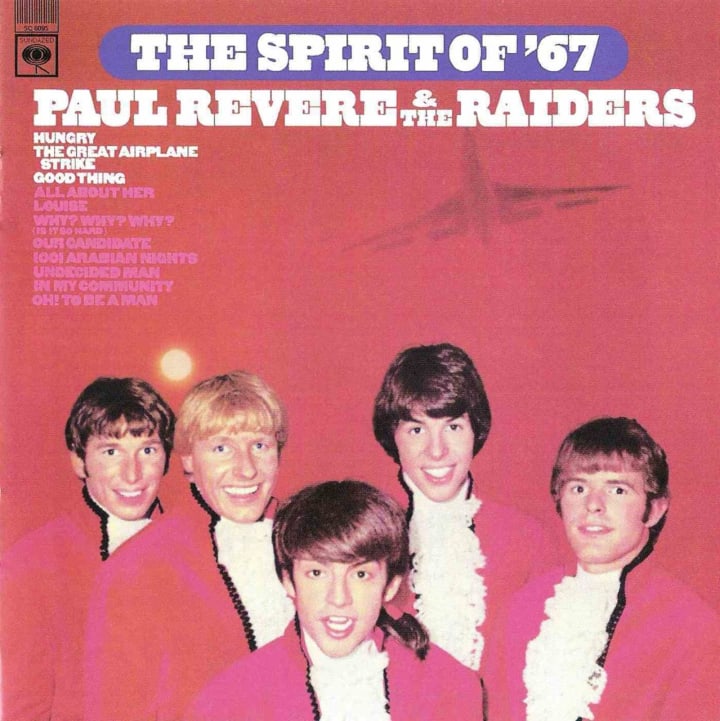
To have the end of the 1960s as the time setting in this movie was somewhat serendipitous. Films and the state of the industry have changed drastically even since Tarantino began his career. 1969 had a desolate feeling. There was a growing and apparent realization that there were so many paradigms shifting, and old ideas ending. 2019 has a similar feeling, in a way of reversion. The socioeconomic issues, climate crisis, and existential paradigm of today are making us look back to living simpler, and reconnecting with parts of society we thought we were to leave behind in favor of a technologically-charged future. There is a certain way we feel about 60s culture now. There is nostalgia, even if we aren't of the era. The style, music, and ideas are making a comeback in the youth culture. This film hit at the right moment, acting as an ideological parallel narrative to current events. That made Once Upon a Time in Hollywood Tarantino's most relatable movie thus far.
Tarantino is really good at soundtracks. "Son of a Preacher Man" is a song we now associate with Pulp Fiction, and Uma Thurman sliding barefoot across the floor. All of his soundtracks are iconic in some way. That was one of the things I personally was most looking forward to in this movie. I was not disappointed. The soundtrack played a big role in accenting the aesthetic of the film, especially scenes with the car radio playing, and with vintage advertisements played in between. The songs were both obscure and recognizable. Obscure enough that we do not associate it with anything that has been oversaturated in pop culture, and recognizable enough that we are brought to the intended setting, and hopefully introducing an entire audience to Paul Revere & the Raiders.
5. Stories in Stories in Stories
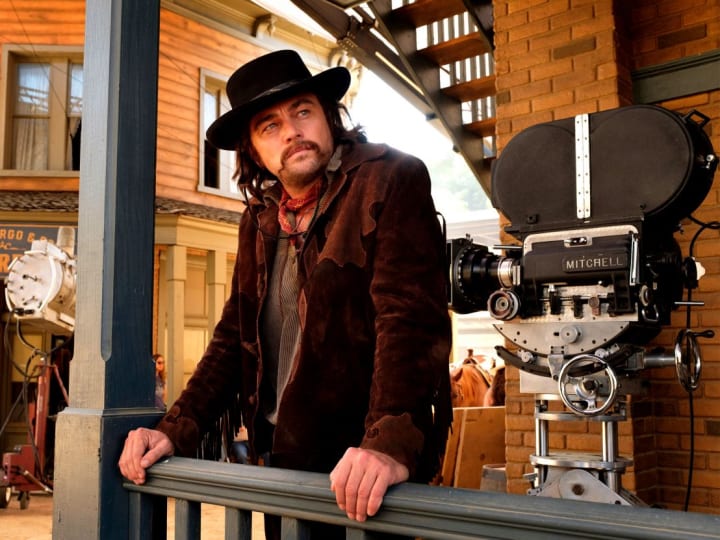
Once Upon a Time in Hollywood is obviously not directly about the Manson murders. It was Tarantino's challenge to use it as a plot device, a dramatic-irony-infused, overarching plot phenomenon. One that has been so saturated in the public eye and pop culture that it was something that would be nearly impossible to get right. How do you portray a half century deceased murder victim without the added mysticism? How do you create the ghost of Charles Manson haunting the film without giving him spotlight attention, without adhering to the cult craze surrounding his character? He had died in prison only five months after the film had been announced. It was a recent enough historical event that there had to be some delicacy in the approach. Many of his victims' families are still grieving. In essence, he made the film using the Manson family as a plot point in a period piece, as they were part of the fabric of events in 1969 Los Angeles. The story was focused on the friendship and tribulations of Dalton and Booth, both aging relics of a bygone industry subsidiary, being tossed around in this very fabric. It seemed to be Tarantino's way of indirectly making the old style cowboy movie he always wanted to do. It was touched on in Hateful Eight, but delved into in this film. Little clips of Rick Dalton's film and TV catalog is where Tarantino seemed to have the most fun. He was able to do all of the practical effects, colloquialisms, and archetypes in Westerns, without making a Western movie directly. The layering of stories made this movie complex enough to capture the intent, and the true complexity of the era it was paying homage to.
6. Tarantinoisms
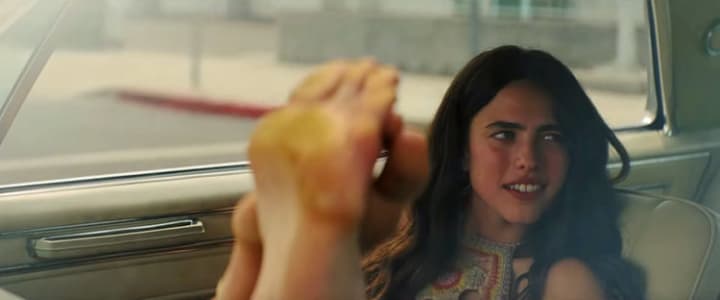
Nine epics into his collection, Tarantino has developed his own language and way of storytelling. This movie did not do much to contribute to that, but it did use isms already in his arsenal. He, like many great directors, have a canon of actors and themes they use. It is self-admitted as the credits referred to the familiar faces as "The Gang." Kurt Russell plays Ralph, another rival stunt man who is essentially recalling his role as "Stuntman Mike," the serial killer stunt driver from Death Proof. Ralph's wife, Janet, is played by Zöe Bell who stars in that movie (stomping out Stuntman Mike's face), and is also a stunt person herself. She is behind the kickass action we all love so much in Kill Bill as Uma Thurman's stunt double. Another point of familiarity is Maya Hawke's role, which inadvertently pays tribute to her mother, who starred in two of Tarantino's most crucial classics. Other isms include using film tracking to skip parts of conversations, the intense, short bursted action, objectified symbolism setting the scene, musical accompaniment, female feet, etc. The list goes on. It is a Tarantino movie. These things are no less than expected at this point.
7. Deprecating Humor
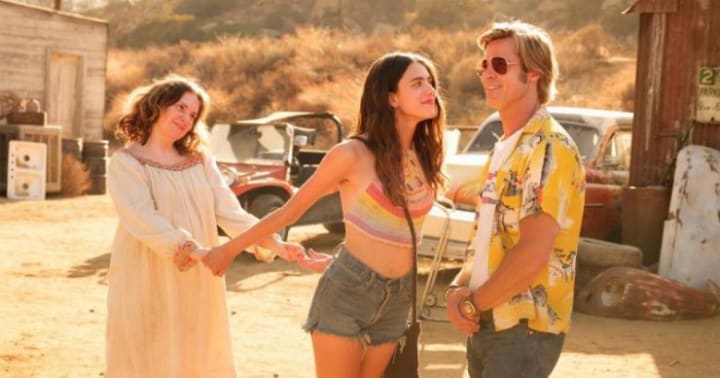
1969 was tumultuous, a product of a disintegrating social paradigm. The characters were dealing with personal demons as a result of their environment. This is exemplified in aging Rick Dalton and Cliff Booth, as well as the disillusioned hippies plotting revenge on the TV stars that taught them violence. All of this was dealt with in a humorous manner. Dalton's outbursts, and the juxtaposition of macho cowboy sensibilities with his sensitive nature caused audible laughter from the audience. Young Pussycat of the Manson family being attracted to Cliff Booth, although ultimately met with flirtatious rejection was a humorous anecdote and plot device to drive the story forward to the Spahn Ranch scenes. The lack of seriousness in attitude, but the underlying rage and violent energy of those scenes were palpable. The point is, that the film deals with existentially difficult situations with ironic comedy. It lends itself to both how comedy is in pop culture today, and maintained somewhat Shakespearean as it contrasted against the tragic main ideas of the plot.
8. The Dog
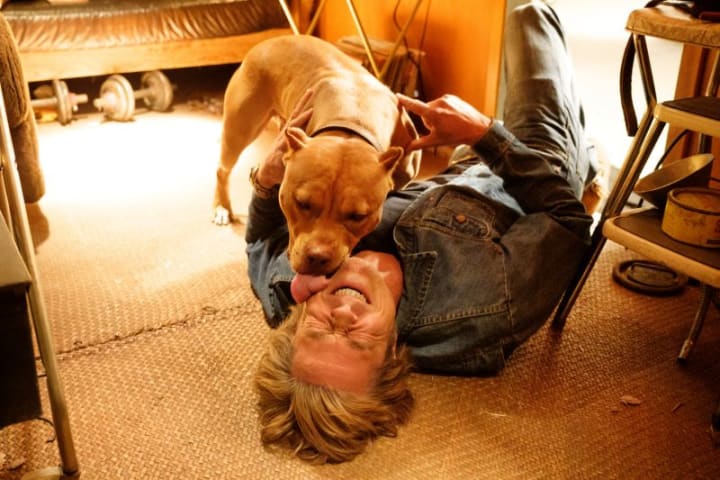
Brandy. That is all.
9. Reflection on the Tarantino Legacy
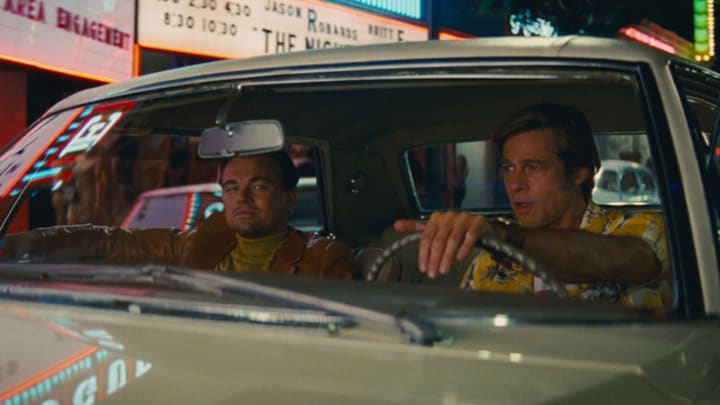
This film was Tarantino's way of saying goodbye to film in a culture where drawn out, high production television is taking over as a dominate entertainment source. TV shows are taking a decade to play out, with the same or more production value as a box office film. It was stated in interviews that Quentin Tarantino made this film by way of how he remembers his childhood growing up in Los Angeles. That was combined with paying homage to how the movies he loved were once made. It follows his continued love of pulp fiction, and the aesthetic of low brow, yet highly sensational works. It is in the scene where Rick Dalton is reading alongside his child costar, and he is describing to her what he is reading and it parallels his character, which makes him emotional. What he is reading is a dime Western, that should, by all intents and purposes, lack depth and roundness of traditional literature. That scene highlighted the concept of pulp fiction that Tarantino is so fond of. It, and the entirety of the film really, capture and plays on the essence of what film and literature are meant to be—entertaining.
In conclusion, Once Upon a Time in Hollywood is Quentin Tarantino's greatest film because of the layers, man, the layers.
About the Creator
Practical Stunts
A music magazine focused on bringing you the authentic sonic experience you never knew you needed.






Comments
There are no comments for this story
Be the first to respond and start the conversation.